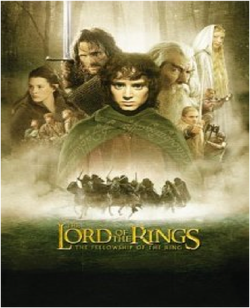I couldn’t help seeing this scene in my mind as I was reading a Harvard Business Review blog post by Linda Hill and Kent Lineback titled, The Words Many Managers Are Afraid To Say. In this scene from the film, Fellowship of the Ring, a fictional group of men with positional power and important titles, such as king, are swinging and clashing their verbal swords over whose point of view is correct. They are so blinded by power and ego they are unable to implement one of the most important tenets of leadership: creating a way for people to contribute toward making something extraordinary happen.
In Hill and Lineback’s blog they ask, “When was the last time you said words like these to the people who work for you?”
“I don’t know.”
“I was wrong.”
“I’m sorry.”
“Would you help me?”
“What do you think?”
“What would you do?”
“Could you explain this to me? I’m not sure I get it.”
Why are leaders so reluctant to say these words of influence and power? Why are we afraid of these words, not just from a leadership perspective, but also in all of our relationships? We expect our Hobbits, “little people”, to say them, but as we mature and become adults and leaders we tremble at the thought that they might escape our lips for fear that we may be perceived as vulnerable, incapable, or not smart enough to do our job.
We know how powerful the emotion of fear is. What if in a paradoxical way, fear actually makes us more powerful? Think about it from this perspective. If I overcome my egos’ fear of being perceived as vulnerable, might other people recognize this and see me as being brave and authentic instead of weak?
Frodo stands up and accepts the mantle of leadership when he says, “I will take the ring.” But by adding, “though I don’t know the way,” he creates the opportunity for everyone else to contribute to something extraordinary! It is at that courageous moment that he is offered the talents, skills and commitments from all the others to form the Fellowship of the Ring.
The 2011 Survey of Employee Engagement, by BlessingWhite, highlights the desire of employees to know the person behind the title. “Managers are not necessarily doing the things that matter most. The actions that correlate the most with high engagement are not always the ones that receive the most favorable ratings. And in some geographic regions relationships trump skills, that is, employees’ knowledge of their managers as ‘people’ behind their titles appears to impact engagement levels more than manager’s actions.”
After debriefing this scene in my workshops, I ask each person to reflect on the Frodo who lives inside each of us. He is our authentic self. He is brave and vulnerable. If we can calm our egos’ fear and allow ourselves to trust our authentic self to be present in our relationships we will be stronger, more influential and better leaders. I believe that many of us have lost touch with our inner Frodo. Perhaps if the words and sentences listed by Hill and Lineback are not part of who you are, then you are not fully ready to pursue the leadership journey.




 RSS Feed
RSS Feed
